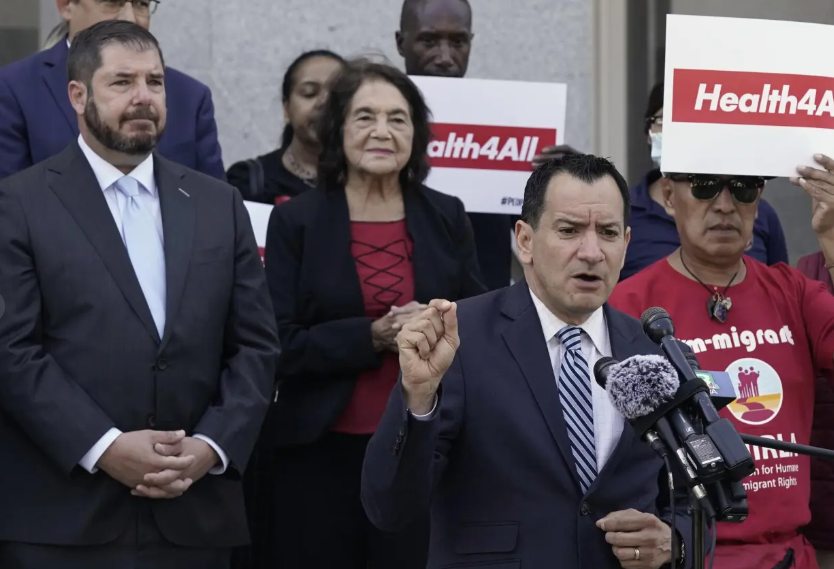Health insurance is a critical aspect of life in the United States, providing access to essential healthcare services. For immigrants, understanding how to navigate the U.S. health insurance system can be challenging due to varying eligibility requirements, legal rights, and available options. Whether you’re a recent arrival or have been living in the U.S. for a while, understanding the different health insurance options can help ensure that you and your family receive the healthcare services you need. This comprehensive guide will break down the essential coverage options for immigrants and explain your legal rights related to health insurance.
Health Insurance Options for Immigrants
There are several health insurance options available to immigrants, depending on their immigration status, income level, and other factors. These options include public programs like Medicaid and the Children’s Health Insurance Program (CHIP), marketplace insurance plans through the Affordable Care Act (ACA), and employer-sponsored health insurance. Below are some of the most common health insurance options for immigrants:
1. Medicaid and CHIP
Medicaid and CHIP provide free or low-cost health insurance for individuals and families with limited income. However, eligibility for these programs depends on the immigrant’s legal status and residence history. Lawfully present immigrants who meet income requirements may qualify for Medicaid or CHIP coverage. This includes individuals who are green card holders, refugees, and asylees. Some states have expanded Medicaid under the ACA, making it easier for more immigrants to qualify.
It’s important to note that some immigrants may face a waiting period before becoming eligible for Medicaid or CHIP, depending on the state. Undocumented immigrants are not eligible for Medicaid or CHIP, but they can receive emergency medical care in certain circumstances.
2. Affordable Care Act (ACA) Marketplace Plans
The Affordable Care Act (ACA) provides a range of private health insurance options through the Health Insurance Marketplace. Immigrants who are lawfully present, including green card holders, refugees, and individuals with temporary protected status (TPS), can purchase health insurance through the marketplace. These plans offer comprehensive coverage, including essential health benefits like hospitalization, prescription drugs, and preventive care.
Depending on your income, you may qualify for subsidies that lower the cost of ACA marketplace plans. These subsidies include premium tax credits and cost-sharing reductions, which make coverage more affordable for low-to-moderate-income individuals and families. Immigrants can also apply for marketplace coverage outside of the annual open enrollment period if they experience qualifying life events, such as marriage or the birth of a child.
3. Employer-Sponsored Health Insurance
Many immigrants may also have access to health insurance through their employer. Employers with more than 50 full-time employees are generally required by law to offer health insurance coverage under the ACA. This coverage typically includes a wide range of healthcare services and may be more affordable than purchasing individual plans. Immigrants with valid work visas or employment authorization may qualify for employer-sponsored health insurance if offered by their employer.
It’s important for immigrants to carefully review the terms of employer-sponsored health plans to ensure that the coverage meets their healthcare needs. Employer-sponsored insurance is often more affordable because employers typically pay a portion of the premiums.
Legal Rights to Health Insurance for Immigrants
Immigrants in the U.S. have several rights related to health insurance and healthcare access. These rights may vary based on the immigrant’s legal status, but the following general rights apply:
1. Emergency Medical Care
Under federal law, all individuals, regardless of immigration status, are entitled to emergency medical care. Hospitals and emergency medical providers must provide treatment for emergencies without regard to the patient’s ability to pay or their immigration status. This ensures that immigrants can receive life-saving care when needed, even if they do not have health insurance.
2. Coverage for Lawfully Present Immigrants
Lawfully present immigrants, including those with green cards, refugees, asylees, and certain visa holders, have the same rights to health insurance as U.S. citizens. These individuals can access Medicaid, CHIP, and ACA marketplace coverage, as long as they meet the eligibility criteria based on their income level.
3. Protection Against Discrimination
Under the ACA, immigrants are protected against discrimination when accessing healthcare services or enrolling in health insurance programs. Health insurers and healthcare providers cannot deny services based on an individual’s race, national origin, or immigration status. However, undocumented immigrants may face challenges when it comes to access to coverage or benefits, as they are not eligible for many public health programs.
How to Apply for Health Insurance as an Immigrant
Applying for health insurance as an immigrant can be done through a variety of routes. If you are applying for Medicaid, CHIP, or marketplace insurance, you can visit the respective program websites to complete an application. The marketplace offers an online portal for enrolling in health plans, and many states provide their own Medicaid and CHIP portals.
When applying, be prepared to provide documentation of your immigration status, income, and household size. This may include your green card, work permit, tax returns, or pay stubs. If you need assistance, there are nonprofit organizations, legal aid services, and community health centers that can help guide you through the application process.
Conclusion
Navigating health insurance as an immigrant can seem overwhelming, but with the right knowledge, you can find the coverage that best suits your needs and circumstances. Whether you qualify for Medicaid, an ACA marketplace plan, or employer-sponsored insurance, it’s important to explore all available options. Understanding your legal rights ensures that you can access the healthcare you need without discrimination or undue financial burden. By taking the time to research your options and apply for coverage, you can protect both your health and your financial future
